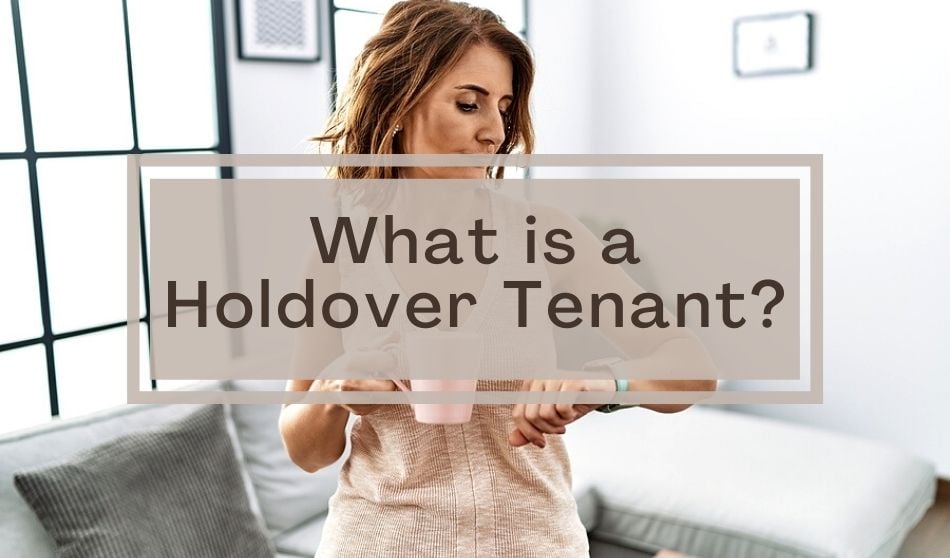There are so many words and terms used to describe different types of tenants that it can get confusing. Holdover tenants can be one of these. Fortunately, they are unique in what they are and their definition.
Defining a Holdover Tenant
There are two distinct definitions of a holdover tenant. The first is simply a tenant that remains in the rental unit past the time that their lease expires and without the landlord’s explicit permission. In the eyes of the law, they are considered to be trespassing and this can lead to an eviction.
The second definition is a tenant whose lease has expired, but who is still paying the landlord rent. If the landlord is still accepting rent payments, then the holdover tenant can still legally occupy the property. In this case, local and state laws would determine the tenant’s new rental term.
The term used to describe the tenancy of holdover tenants is “tenancy at sufferance”. This is basically the opposite of a tenancy at will. A tenancy-at-will is when a tenant occupies a property with the consent of the owner, but without an official written contract or lease. Tenancy at sufferance is when a tenant’s lease has expired, they no longer have the approval of the landlord, but have not been evicted yet.
Holdover tenant situations come into existence when landlords do not re-sign a lease with their current tenants, but the tenants still remain in the unit. The motivation for the tenant’s occupancy varies. Some use the holdover period to continue to live on the property without a long-term commitment. Others may have struggled to find another property to rent or are having financial difficulty.
The Liability from Holdover Tenants
If there is a holdover tenant on your property, then you need to be aware of the possibility of liability and damages. If you are no longer accepting payments from these tenants, then the tenant is no longer liable for any damages done to the property. This leaves you on the hook for any damages done to the unit before the holdover tenant either leaves or is evicted.
Bringing in pets without permission is another liability issue with holdover tenants. Along with possibly causing extensive damage to your unit, pets may end up causing injury to someone. If that occurs on your property, you may end up being held liable.
Handling Holdover Tenants
There are a couple of different ways to deal with holdover tenants and they are fairly straightforward. You can either let them stay and work out a new rental agreement or choose to evict them and follow that process.
Let Them Stay:
Letting a holdover tenant stay on your property is a possibility, but you need to be aware of how to handle it. The most important thing is to get them on a written, well-defined lease as soon as possible. Legally, if you have already taken payment, then the tenant can occupy the property. This can also affect the lease terms, depending on the state. Some states may automatically change it to month-to-month lease terms.
Once you have taken payment from your holdover tenant, then the basis for eviction can no longer be overstaying their lease period. Payment should only be taken until you are positive that you are comfortable with them staying on the property.
Evicting Them:
If there isn’t another solution that can work for you, you can choose to evict your holdover tenant. Be sure to know what the legal eviction process is so you can make the process as simple as possible. Keep in mind, his process is only an option if you have not taken money from them past the time their lease expired. Once you have accepted rent from a holdover tenant, you are no longer able to evict them on the basis of overstaying their lease period. If they offer, refuse to accept the payment and send them a notice to vacate. The notice can have reasons listed such as non-payment of rent, or violation of lease terms by overstaying tenancy.
Learn more: What Is a Legal Eviction Process?
In the eviction process, the holdover tenant will essentially be treated as if they were a trespasser on your property. Once the eviction is successful, then you will be able to have the holdover tenants moved from your rental property.
What Rights Do the Holdover Tenants Have?
While you have a few different options for dealing with holdover tenants, you must remember that they still have certain legal rights. If these rights are violated during the eviction process, then you may find yourself left with a wrongful eviction.
Holdover tenants have the right to a safe and habitable dwelling, along with the right to file complaints about health or safety violations. This means that you still need to maintain the property, in whichever capacity you normally do. Otherwise, they can make an argument that you haven’t kept your property habitable and turn the tides.
They also have the right to notice before you can enter the property. Be sure to respect their rights and serve them an eviction notice in the appropriate manner. It will help your case, even if it’s not specifically necessary.
